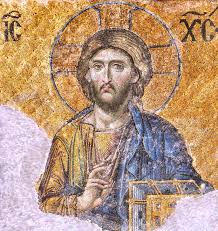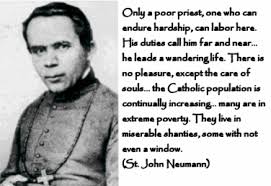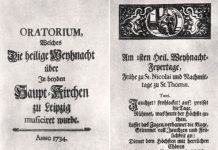The good man out of the good treasure of his heart produces good, and the evil man out of his evil treasure produces evil; for out of the abundance of the heart his mouth speaks (Lk. 6:45). ⧾
Our Gospel reading today is a continuation of last Sunday’s reading and again by means of concrete examples Our Lord explains the importance of a pure heart. In Psalm 51, one of the Seven Penitential Psalms, the Psalmist prays: A pure heart create for me, O God, put a steadfast spirit within me…a humbled contrite heart you will not spurn. Our Lord teaches us: The good man out of the good treasure of his heart produces good, and the evil man out of his evil treasure produces evil; for out of the abundance of the heart his mouth speaks (Lk. 6:45). What is implied and elsewhere explicitly expressed by Our Lord is the danger of possessing an impure heart, a proud and cold heart. He warns us: From within, out of the heart of man, come evil thoughts, fornication, theft, murder, adultery, coveting, wickedness, deceit, licentiousness, envy, slander, pride, foolishness. All these evil things come from within, and they defile a man (Mk. 7:22-23).
Again, the Psalmist gives voice to those who seek the grace of a humbled contrite heart: Show me, Lord, your way so that I may walk in your truth. Guide my heart to fear your name (86:11). On Wednesday of this week we will begin the holy season of Lent, and in keeping with a Biblical tradition, we will be marked with blessed ashes; a sign of our sorrow for sin and our resolve to undertake the traditional Lenten discipline of prayer, fasting, penance and almsgiving so that we might be renewed and sanctified by the grace of repentance and conversion and so experience the joy of salvation. We do well to heed the words that Our Lord addressed to the Pharisees: ‘Bear fruit that befits repentance’ (Mt. 3:8). This implies acts of penance, conversion of manners and most importantly, a deeper and more intense awareness of God’s holiness. St. Maximus the Confessor wisely admonishes us: For Jeremiah warns us: Do not say: ‘We are the Lord’s temple.’ Neither say, ‘Faith alone in our Lord Jesus Christ can save me.’ By itself faith accomplishes nothing. For even the devils believe and shudder. No, faith must be joined by an active love of God which is expressed in good works. The charitable man is distinguished by sincere and long-suffering service to his fellow man: it also means using things aright [rightly]. (From the chapters on Charity, Liturgy of the Hours, Vol. III, p. 230).
One of the many benefits of fasting and abstinence not only from food and drink but also from the many conveniences that we enjoy at least in our part of the world, is a renewed and purified appreciation of their value and goodness. Using things rightly helps us to live with greater integrity; always returning to the quiet unassuming Christian sacrificial life defined by love, humility and hard work. Using things rightly also entails appreciating and valuing the life of prayer which for Catholics always entails our attitude towards the Church’s greatest treasure – the Holy Sacrifice of the Mass. What has been done to the Mass and what have we done to the Mass? It is my contention and not mine alone that the attack on the Mass some fifty years ago and now sadly renewed in our time has had devastating effects on the Church and by extension, on the world at large. As the world experienced the shock and awe of the sexual revolution, on the whole the Church laid down her arms and truth be told, often aided and abetted the agents of this destructive revolution. To a great extent, all of us today are both the children of this revolution and its victims.
The Mass is everything because the Mass is Jesus, pure and simple. It is Our Lord and Saviour whom we come to encounter, listen to and receive with humble and contrite hearts. We do not talk about Him here. We encounter Him. What dispositions do we bring to the celebration of the Holy Sacrifice of the Mass? Contrary to what we hear even from the highest offices of the Church, what is needed is not conformity to the world or a worldly spirit. Too many Catholics have been exiled into a spiritual desert. We must rather, ask for the ancient paths, where the good way is (Jer. 6:16). We inhabit what has become a desolate city. Confusion, enmity between peoples, distrust, indifference, war and rumours of war are all around us and afflict us gravely. The solution is always one and the same: Jerusalem. Jerusalem, Return to the Lord your God. Jerusalem, Jerusalem, Convertere ad Dominum Deum Tuum.
Let the Church that today is so weakened and wounded, be once again a shining light to the nations; an example to follow because of our humble submission to the discipline of the Lord. Let our humility be manifest first and foremost in the holy presence of God; in our worship and let this humility be the foundation of our life for as we worship so we become. May the discipline and prayer of Lent awaken in us the impulse to adoration, to surrender, to spiritual obligation, to self-sacrifice and self-abnegation – to all those attitudes which right religion demands and so provide an example to follow for those who sit in darkness and in the shadow of death, to guide our feet into the way of peace (Lk. 1:79).
Let us also pray for one another as we undertake our Lenten discipline; that in each one of us the promise of Our Heavenly Father may be fulfilled: A new heart I will give you, and a new spirit I will put within you; and I will take out of your flesh the heart of stone and give you a heart of flesh (Ezek. 36:26). ⧾











